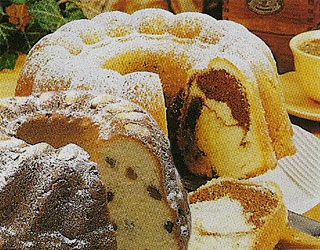|
|
Holidays and Diet Tips

Keep
those holiday pounds at bay. Decide what your eating goals are
and prepare for them ahead of time. Overeating is a phenomenon common
to
everyone around the holidays. Uncomfortable situations, like a room
full
of strangers - or worse, family - can leave you aching to dissolve your
discomfort with a big wedge of cake.
If you know that you've got a
party to attend, don't skimp on regular
meals or you'll spend the night scarfing down festive fare. Instead
have
a light snack to tide you over until dinner.
Be aware of what you are eating
and notice when you have really had
enough.
Minimize rather than eliminate the
amount of 'extras' like gravy, butter
and desserts you consume. If you let yourself have a few bites of
things
that give you pleasure, you won't feel deprived.
Good food, friends and
conversation can lead to overeating.
Think about the food that's going
to be served and how you're going
to handle yourself.
If you're temped to nibble while
you chat, keep your hands busy (hold
something in your hands).
Just because you've blown an
evening of sensible eating doesn't mean
you've blown the season. You won't gain weight from one event. What
counts
is how you handle the whole season.
It takes approximately 3,500
calories to gain a pound of fat.
For alcohol users - Alcohol lowers
your blood sugar on an empty stomach,
that can in turn stimulate your appetite. Begin a festive evening with
mineral water or a low caloric drink, then treat yourself to your
favorite
alcoholic beverage.
To
prevent bad hangovers drink a glass of water after
every alcoholic drink. Alcohol is a diuretic
and drinking lots of water
helps replace lost fluids and prevent dehydration. It is also good idea
to have at least two glasses of water before you go to bed.
Beware of office chocolate
overdoses. Take just one piece and pass the
rest to co-workers.
Don't stock your house with
holiday goodies more than day or two before
you host an event.
Carry a toothbrush with you. When
you've filled your food quota, brush
- you'll be less likely to eat more.
Try making lower-fat versions of your
holiday favorites.
Pineapple is good remedy for food overindulgence. Fresh pineapple is loaded with
an enzyme that helps you digest protein.
So if you’ve eaten too much, a couple of slices will make you feel
better and it will help you digest protein food much faster.
|
|
FONDUE
TIPS
For
cheese and chocolate fondue use shallow, heavy bottomed cast-iron or
porcelain
fondue pot. Do not use a porcelain fondue pot for meat because they
will
not withstand the high temperature required for oil.
Never
use fondue forks for dipping, because that may transfer sauce to the
cooking
oil, creating sediment in the oil, and reduce frying temperature.
Use
fondue forks with different shaped handles or colors so guests can
determine
whose forks are whose.
Never
try to eat directly from the fondue fork because they can get extremely
hot. Dinner forks should be available.
Proper
fondue plates should have separate compartments for sauces, vegetables,
and meat. Uncooked
meat and vegetables should be always served separately. To serve sauces
you can also use small bowls.
Serve
cheese fondues with various breads for dipping. Even stale bread can
taste
delicious when swirled in the creamy cheese sauce. Bread should include
crusts to help stay on the forks.
Never
fill more than 1/3 of the fondue pot with melted cheese, oil or
chocolate
because it may bubble up when raw food is added.
For
a lighter healthy version of the meat fondue replace the cooking oil
with
stock or broth.
Serve
raw meat, poultry and fish for fondue on beds of ice. Keep in mind that
raw meat should not be left at room temperature for more than 2 hours.
Click here for more tips
|
|